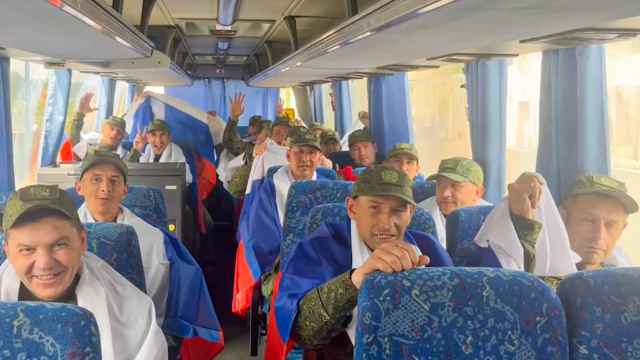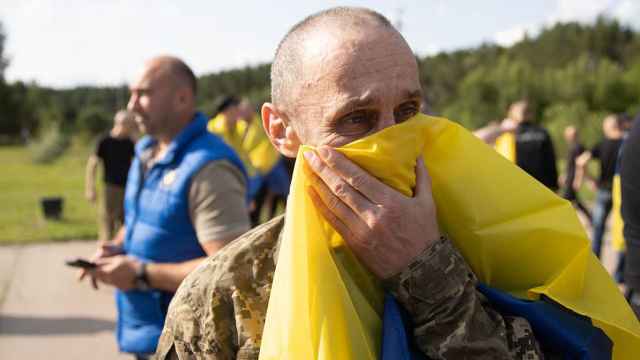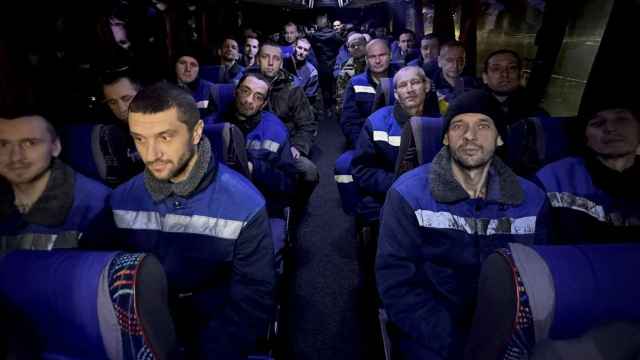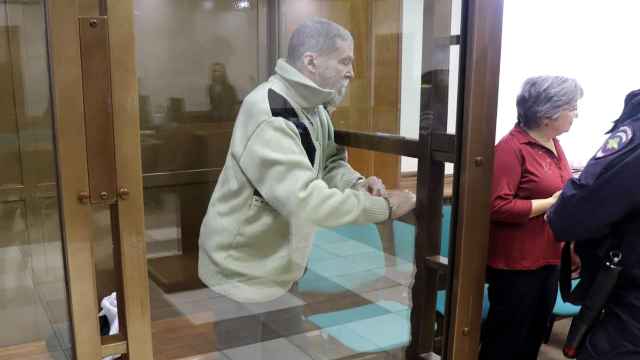Russia said Sunday it had exchanged another 303 Ukrainian prisoners of war for the same number of Russian soldiers held by Kyiv — the last phase of the largest-ever such swap between the warring countries.
"In accordance with the Russian-Ukrainian agreements reached in Istanbul on May 16, the Russian and Ukrainian sides have (over the weekend) carried out the exchange of 1,000 people for 1,000 people," Russia's Defense Ministry said, amid international pressure for a ceasefire.
Zelensky confirmed the swap was complete.
Both sides received 390 people in the first stage on Friday and 307 in the second stage on Saturday.
Russia has signalled it will send Ukraine its terms for a peace settlement after the exchange, without saying what those terms would be.
U.S. President Donald Trump on Friday congratulated the two countries for the swap.
"This could lead to something big," he wrote on his Truth Social platform.
Trump's efforts to broker a ceasefire in Europe's biggest conflict since World War II have so far been unsuccessful, despite his pledge to rapidly end the fighting.
An AFP reporter saw some of the formerly captive Ukrainian soldiers arrive at a hospital in the northern Chernihiv region, emaciated but smiling and waving to crowds waiting outside.
"It's simply crazy. Crazy feelings," 31-year-old Konstantin Steblev, a soldier, told AFP Friday as he stepped back onto Ukrainian soil after three years in captivity.
One of the soldiers formerly held captive, 58-year-old Viktor Syvak, told AFP it was hard to express his emotional homecoming.
Captured in the Ukrainian port city of Mariupol, he had been held for 37 months and 12 days.
"It's impossible to describe. I can't put it into words. It's very joyful," he said.
A Message from The Moscow Times:
Dear readers,
We are facing unprecedented challenges. Russia's Prosecutor General's Office has designated The Moscow Times as an "undesirable" organization, criminalizing our work and putting our staff at risk of prosecution. This follows our earlier unjust labeling as a "foreign agent."
These actions are direct attempts to silence independent journalism in Russia. The authorities claim our work "discredits the decisions of the Russian leadership." We see things differently: we strive to provide accurate, unbiased reporting on Russia.
We, the journalists of The Moscow Times, refuse to be silenced. But to continue our work, we need your help.
Your support, no matter how small, makes a world of difference. If you can, please support us monthly starting from just $2. It's quick to set up, and every contribution makes a significant impact.
By supporting The Moscow Times, you're defending open, independent journalism in the face of repression. Thank you for standing with us.
Remind me later.






